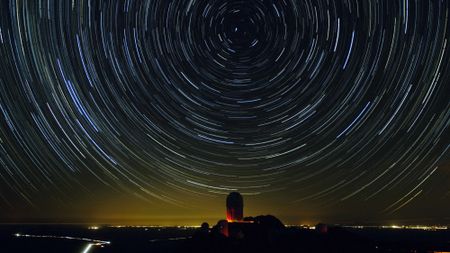With supplies dwindling, researchers discover a massive helium field in Africa


Helium is used for a variety of things — to keep satellite instruments cool, to fill balloons, to clean rocket engines — which is why researchers are ecstatic over the discovery of a giant helium gas field in Tanzania's East African Rift Valley, estimated at more than 54 billion cubic feet.
"This is a game-changer for the future security of society's helium needs and similar finds in the future may not be far away," Prof. Chris Ballentine of Oxford University's Earth Sciences Department told the BBC. Helium is formed by the steady radioactive decay of terrestrial rock, and researchers say in the Rift Valley, volcanic activity is releasing helium buried in old rocks that becomes trapped in shallower gas fields. Because the world's helium supply was being depleted, the price has gone up 500 percent over the last 15 years.
Researchers say the amount of helium found in just one section of the Rift Valley is enough to fill more than 1 million MRI scanners, and now they just need to determine the best area to drill. "Helium is the second most abundant element in the universe but it's exceedingly rare on Earth," Prof. John Gluyas of Durham University's Department of Earth Sciences told the BBC. "Moreover, any helium that you do find if you're not careful will escape, just like a party balloon it rises and rises in the atmosphere and eventually escapes the Earth's gravity altogether."
Subscribe to The Week
Escape your echo chamber. Get the facts behind the news, plus analysis from multiple perspectives.

Sign up for The Week's Free Newsletters
From our morning news briefing to a weekly Good News Newsletter, get the best of The Week delivered directly to your inbox.
From our morning news briefing to a weekly Good News Newsletter, get the best of The Week delivered directly to your inbox.
Sign up for Today's Best Articles in your inbox
A free daily email with the biggest news stories of the day – and the best features from TheWeek.com
Catherine Garcia has worked as a senior writer at The Week since 2014. Her writing and reporting have appeared in Entertainment Weekly, The New York Times, Wirecutter, NBC News and "The Book of Jezebel," among others. She's a graduate of the University of Redlands and the Columbia University Graduate School of Journalism.
-
 Gaza is running out of cash
Gaza is running out of cashUnder The Radar Palestinians pay the price as black market springs up around banknotes and coins
By Elizabeth Carr-Ellis, The Week UK Published
-
 Law firms: Caving to White House pressure
Law firms: Caving to White House pressureFeature Trump targets major law firms tied to his past investigations
By The Week US Published
-
 Venezuelan deportees: Locked up for tattoos?
Venezuelan deportees: Locked up for tattoos?Feature A former pro soccer player was deported after U.S. authorities claimed his tattoo proved he belonged to a Venezuelan gang
By The Week US Published
-
 Dark energy may not doom the universe, data suggests
Dark energy may not doom the universe, data suggestsSpeed Read The dark energy pushing the universe apart appears to be weakening
By Peter Weber, The Week US Published
-
 Pharaoh's tomb discovered for first time in 100 years
Pharaoh's tomb discovered for first time in 100 yearsSpeed Read This is the first burial chamber of a pharaoh unearthed since Tutankhamun in 1922
By Peter Weber, The Week US Published
-
 Scientists report optimal method to boil an egg
Scientists report optimal method to boil an eggSpeed Read It takes two temperatures of water to achieve and no fancy gadgets
By Peter Weber, The Week US Published
-
 Europe records big leap in renewable energy
Europe records big leap in renewable energySpeed Read Solar power overtook coal for the first time
By Peter Weber, The Week US Published
-
 Blue Origin conducts 1st test flight of massive rocket
Blue Origin conducts 1st test flight of massive rocketSpeed Read The Jeff Bezos-founded space company conducted a mostly successful test flight of its 320-foot-tall New Glenn rocket
By Peter Weber, The Week US Published
-
 US won its war on 'murder hornets,' officials say
US won its war on 'murder hornets,' officials saySpeed Read The announcement comes five years after the hornets were first spotted in the US
By Peter Weber, The Week US Published
-
 Dark energy data suggest Einstein was right
Dark energy data suggest Einstein was rightSpeed Read Albert Einstein's 1915 theory of general relativity has been proven correct, according to data collected by the Dark Energy Spectroscopic Instrument
By Peter Weber, The Week US Published
-
 New DNA tests of Pompeii dead upend popular stories
New DNA tests of Pompeii dead upend popular storiesSpeed Read An analysis of skeletal remains reveals that some Mount Vesuvius victims have been wrongly identified
By Peter Weber, The Week US Published
